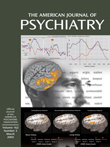Abstract
OBJECTIVE: Biases in the perception of personal vulnerability to risk could influence how individuals make decisions in many contexts. Schizophrenia patients, because of neurocognitive deficits and psychiatric symptoms, are often seen as compromised in their ability to appreciate risk information and in their decision-making capacity. The authors investigated whether schizophrenia patients share the same optimistic biases frequently demonstrated by non-ill adults in their perceptions of personal risk. METHOD: Twenty-five schizophrenic outpatients and 23 healthy comparison subjects completed a risk perception questionnaire on which they compared their own likelihood of experiencing adverse events to that of other adults. Questionnaire items were adverse events of three types: controllable, uncontrollable, and neutral. The degree to which subjects rated their own likelihood of experiencing adverse events as lower than others’ was an index of optimistic bias. RESULTS: Although both groups showed an optimistic bias in general, healthy comparison subjects demonstrated a greater level of optimism than did schizophrenia patients, especially for events typically perceived as controllable. Psychiatric symptoms rated with the Brief Psychiatric Rating Scale and the Scale for the Assessment of Negative Symptoms bore little relationship to patients’ ratings on the risk questionnaire. CONCLUSIONS: Results showed that an unrealistically optimistic bias in the perception of personal risk was at least as evident in a healthy comparison group as in a schizophrenia group. Such a bias could influence decision making. By identifying and responding to such biases, clinicians and researchers can promote more fully informed and rational decisions in patients and healthy adults.



